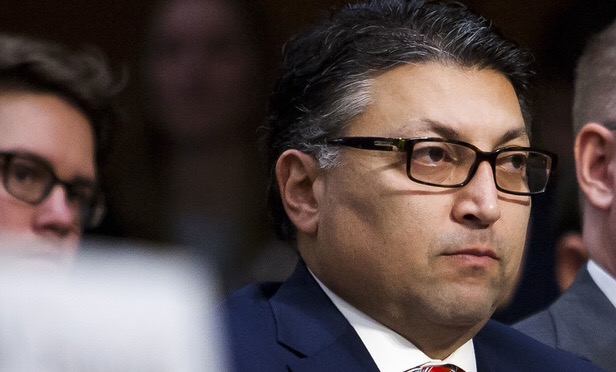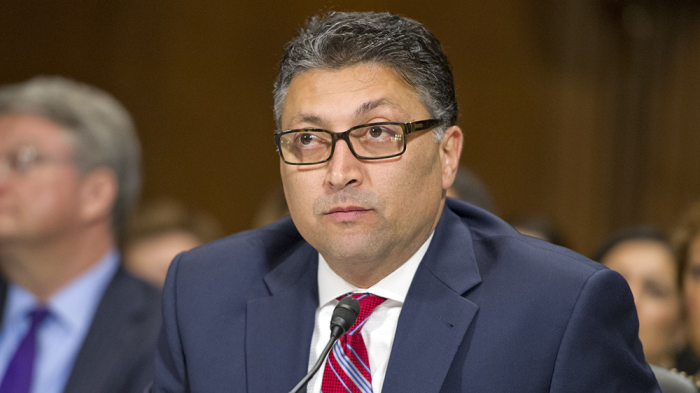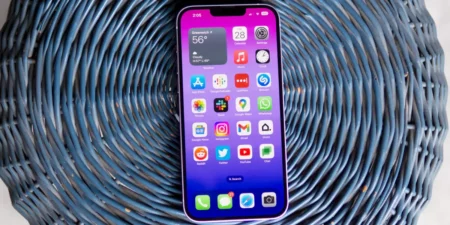There’s always two sides to every story. In this case, AT&T believes that it’s making the right decision to go through with the merger to acquire Time Warner’s assets. No matter what Randall Stephen thinks, the Justice Department lawsuit to block the merger between AT&T and Time Warner is one of the best moments of antitrust examples in American. Many thought that under Trump’s administration, the merger has a high chance of going through, but this lawsuit is welcomed with open arms. Better late than never.
Remember the whole AT&T trying to buy T-Mobile and the mess AT&T had to go through while trying to clean up? Well, Randall Stephenson, AT&T CEO, has no one to blame but himself. They forcefully pushed for the merger talks to proceed. They tanked their own plans to merge their company with Time Warner, effectively trying to become the nation’s second-largest wireless carrier, and at the same time own Time Warner treasure collection of cable channels and sports rights.
AT&T on its part didn’t approach this situation properly. Rather, they thought they could approach the government with a too-comfortable attitude. They approached negotiations casually, and misread (or didn’t even take into consideration) the history of similar deals. Furthermore, they also misread the person who would ultimately make the final call, the new leader of DOD’s Antitrust Division, Makan Delrahim. Remember the interview that Stephenson reacted in when asked about having to sell off CNN? Those were some very interesting things to say because AT&T doesn’t own Time Warner, and he even went so far to tell the SEC in a public filing that the deal would be a done deal by the end of the month. AT&T forgot the fact that they needed approval from the U.S. government.
Where AT&T Went Wrong
AT&T went about handling certain situations the wrong way. First, it hurt itself by failing to respect DOJ staff that learned key lessons from the previous giant merger of Comcast with NBCU in 2011. With what DOJ learned from that experience, and what DOJ’s antitrust head Delrahim brings to the table as a whole, he sued to block AT&T from completing the deal with Time Warner. All the frustration that DOJ went through with that told them one thing for sure: trying to bring in conditions and ongoing oversight with illegal mergers doesn’t work and isn’t good for consumers.
As it stands, DOJ has a very strong case against AT&T-Time Warner merger. AT&T has not only failed to address the concerns of DOJ, but also provided unintended proof in the form of the company’s behavior over the years. DOJ is using quotes from AT&T’s and DirecTV’s own internal documents to show what AT&T plans to use Tuner’s portfolio to raise price for any competing video distributor (to drive them to AT&T), and to slow competition from online video. Now does this sound like something that’s good for consumers? AT&T continues to blatantly lie and the don’t realize the fact that everyone, including DOJ, sees through them. DOJ attorneys know exactly what they’re talking about.
By merging with Time Warner, they would get three of the five top basic-cable channels as well as many top news networks. That’s a level of control no company should have. AT&T would have HBO, Turner Sports that has rights to NBA, MLB, and March Madness, and PGA Championship. DOJ especially considers sports and news as “must-have” content. These are contents viewers still have to see in real time. AT&T also forgot the fact that it’s the largest pay-TV provider in the country. The company has about 25 million customers, most of them came from the DirecTV acquisition in 2015. It’s also bringing in more pay TV to its huge wireless customer case. It’s completely possible for AT&T to use its strong arm to keep competitors from emerging or thriving in the industry. AT&T would also raise prices that consumers pay.
The problem here is that if you’re a competing pay-TV provider, no matter the kind, you’ll want to have rights to things like March Madness, HBO, and CNN in order to survive. If you have to pay extra to get access to them, the cost will then be extended to consumers. If you don’t have those things in your portfolio to begin with, then people won’t subscriber to your service. DOJ estimates that if this merger were to go through then it could extract hundreds of million of dollars in increased fees from other pay-TV providers. Since these are “must-have” programming, there’s no way for them to get this, thus will have to pay the extra fees to get the programming so they can offer it to their subscribers. No matter the angle you look at it, it would mean increased cost for consumers and more power for AT&T.
AT&T on the other hand says that it has every reason to offer Turner’s content to as many places as possible, but the argument is dismissed by DOJ. The reason being is because overtime, AT&T’ will make more money by signing up frustrated pay-TV customers from other providers. If those customers aren’t happy with their current provider, they’ll likely turn to AT&T for programming, meaning more business for AT&T.
Strong AT&T Presence
Federal law prohibits locking competing distributors out of pay-TV content, but you can easily make it so expensive that no one would pay for it. AT&T, for example, can make it so you have to “take this bundle or else” or have to buy in “bulk.” They’ll continue bundling things up. Small distributors to big will have to pay even more and will be forced to buy at higher licensing fees. They will have to buy in order to get the small number of channels that viewers really want to watch. DOJ has realized that this new bulked-up AT&T would have the power to make things very difficult for anyone.
Here’s something else to take into consideration: online competition. Let’s forget about licensing and distribution for a moment. AT&T is also a data provider and will have the power and methods to make that content less attractive to consumers. Some content could be subject to hit data caps while AT&T content may not. Even right now, DirecTV’s streaming doesn’t count against your monthly data limit. AT&T will start to play favorites by providing speedy lanes to their own content while delaying or dismissing other content going through their network. FCC chairman Ajit Pai is already working to dismantle net neutrality next month.

Lessons Learned
Department of Justice learned a lot from the former Comcast-NBCU merger. DOH and FCC both found the merger to be illegal, so why did it go through? The reason is because DOJ thought that putting a series of constraining limits on the new entity’s behavior will help regulate things, and that conditioned behavior will be good enough, so the merger was approved. DOJ thought they can just control the entity’s behavior and not have to create any policy to give everyone a decent internet connection and just have companies take care of all that. DOJ learned the hard way that it doesn’t work.
Since that time, DOJ learned that behavioral conditions don’t work and never will. Good lawyers will find loopholes and easily drive companies right through them. That new entity that DOJ approved has continued to bulk-buy and similar behavior. FCC at the time praised Comcast for the Internet Essential program or low-income people, but here’s the truth: the service is really hard to apply for, hard to get, second-rate at best, and less Comcast strategically identify customers that will be able to upgrade to services at full cost. See the loopholes?
Antitrust Division head Delrahim has stated that he’s learned a lot of lessons and has internalized them. He made a very important speech on October 26 to the nation’s antitrust lawyers. He reminded everyone that the antitrust is law enforcement, not something of a backdrop regulation. He’s proven that he isn’t willing to compromise with regulatory oversight packed into a merger approval, like FCC and DOJ did with the approval of Comcast-NBCU merger. “At times antitrust enforcers have experimented with allowing illegal mergers to proceed subject to certain behavioral commitments,” he said. He was referring to the Comcast merger and he also wants competitive markets to arise that will require less government regulation and intervention.
Final Thoughts
AT&T CEO Randall Stephenson thought he had this in the bag, but he clearly doesn’t. He underestimated the efforts he would have to go through to get this deal approved. AT&T would have to accept structural relief. This means it would require taking off “must-have” programming from the deal, which is something Stephenson absolutely doesn’t want. That’s one of the main reasons why AT&T is even purchasing Time Warner in the first place.
Unless AT&T backs off now from trying to buy Time Warner, the litigation period for this merger will move into years to come, and in the end, AT&T will still lose. If Stephenson hasn’t realized that, he will soon.





